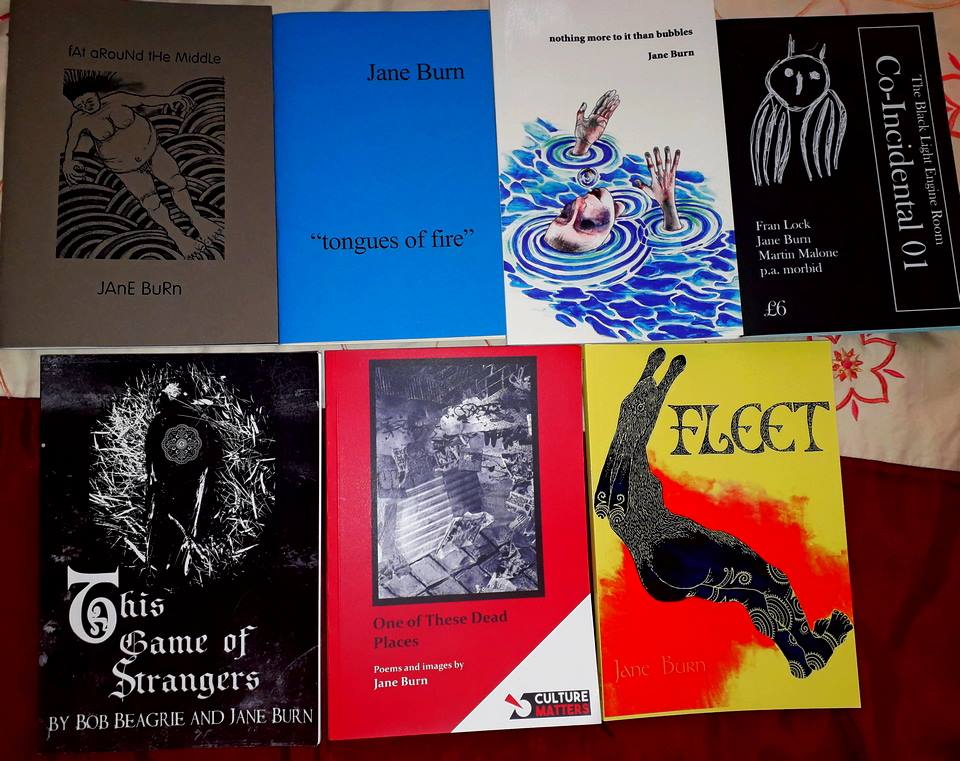
JANE BURN – POETRY AS HARD GRAFT, INSPIRATION, REACTION OR EXPERIMENT?
I interviewed poet & artist Jane Burn who won the Michael Marks Environmental Poet of the Year 2023-24 with A Thousand Miles from the Sea.
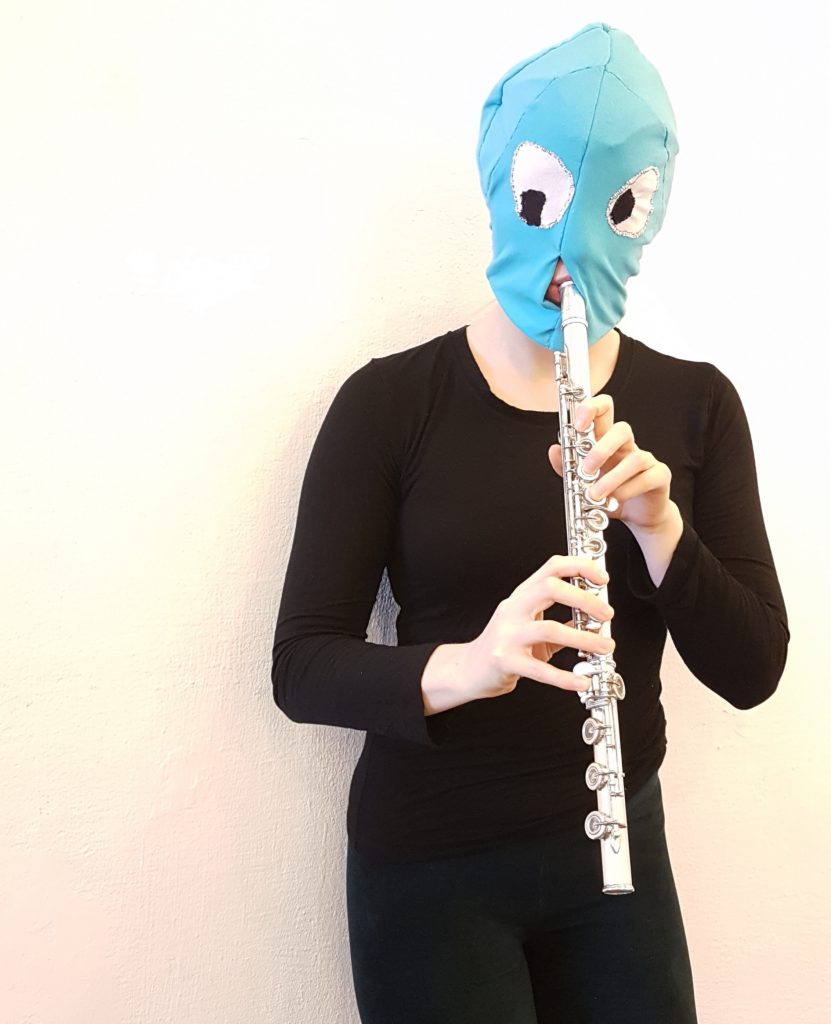
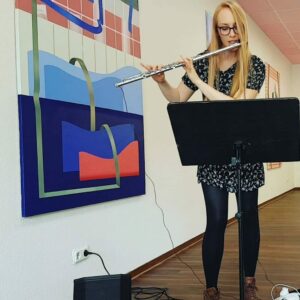
I interviewed Amy Bryce, composer, curator and performer, about how she co-creates immersive effects in music. Amy has worked as composer in residence for the Stiftung Kunst und Musik für Dresden. Her opera, A Kinder Society, was adapted for film and premiered in the 2021 TONLAGEN Festival in Hellerau. Amy’s work has also been programmed by the BBC Singers on Radio 3, Tête-à-Tête Opera and at the Lilian Baylis Theatre in association with Sadlers Wells.
Leslie: Could you describe what it means when you call yourself on your website a ‘composer, curator and performer’, please?
Amy: I would consider myself primarily a composer but this is a rather big umbrella of ‘things’ these days. You can get carried away with finding the right labels for all of it. I use the term performer alongside that because so many aspects of my work involve me getting involved with the performance execution as well as the writing process, especially with co-authored work. I am a flautist, pianist, vocalist and I also use live electronics. I use the term curator on my website but these days, perhaps ‘designer’ or ‘director’ are more appropriate because I try to find terminology to encompass the idea that ‘Composer’ to me means more than just ‘sit in a room alone and create a score.’ I like to build works in the practical sense, working with people in order to make them. Improvisation and interdisciplinary collaboration of many kinds is very important to me.
Leslie: What have been the key learning experiences from childhood onward that have developed you as a musician/artist? How have you learned your skills?
Amy: I started off first as a performer. I’m very classically trained and was from a young age. Even then, I think I was always searching for new ways that I could express myself through music and that’s probably why my practice has become so Interdisciplinary. I first worked with dancers in my teenage years and was always encouraged to be physical with my composing; improvisation being at the heart of everything and to never confine myself to just one specialism. I have been blessed with the mentors that I have had to lead me down this direction and fortunately, my own curiosity has taught me to ask questions, be explorative, apply for that thing, see that concert and talk to everyone I can. I am built of the relationships I’ve made with fantastic musicians along the way.
Leslie: Can you tell us about the performance aspects of Pseudo Spiritum and how they related to the concerns of the piece?
Amy: Pseudo Spiritus was the first installation that I created during my residency with the Stiftung Kunst und Musik für Dresden in 2019. It was an interdisciplinary work with an environmental concern. It considers a world where the air is so polluted that inhabitants are born masked, requiring breathing assistance immediately. The dancer and I built it around an improvisatory exploration of breath. We developed a storyline where these characters discover their bodies and lungs, each other and finally, how to express themselves creatively in this strange world.
Leslie: Can you describe the process of co-authoring the opera A Kinder Society? What might I expect to hear and see if I came to a performance? What areas of human experience does it deal with?
Amy: A Kinder Society invites its audience to reconnect with their inner child. Originally designed to be a piece of immersive theatre, we at the Kinder Society believe that from the moment we are born, many aspects of modern living damage children by actively discouraging free connection with our imagination and feelings. Eventually, we will stop being the pure-natured souls we were intended to be and we become unhappy adults, preoccupied with the stresses of the modern world. Kinder Society presents its audience with a retraining programme, inviting the audience to participate in different activities in order to awaken their imagination and revert them back to their natural state of childlike mentality.
Leslie: Can you explain how you graphically notate music? What did graphically notating all of A Kinder Society involve? Why did you do it that way?
Amy: I hand-wrote each graphic score for Kinder Society. I consider my performers to be my first audience and when inviting them to perform KS, I was inviting them into a world that needed to appear to them to spread beyond the margins of the work itself. I had created a culture and a way of life with rules, attitudes and moral grounding. Therefore, looking at the scores, they needed to always feel like there could be a deeper level they could attain. This is why they are handwritten and detailed. It means that the performer treats them like artwork and receives them as visual audience. Moving through these scores that are so dense and populated with ideas, it’s important that the performer only feels like they are scratching the surface. All of the scores are physical and interactive in some shape or form. Whether this includes clear acetate, unfolding sections or parts that require turning/ moving to perform, each score was encouraging a childlike relationship between performer and score that was important to the character development.
Leslie: Can you describe the process of turning A Kinder Society into a film, please.
Amy: Turning Kinder Society into a film focussed on the role of the audience in order to make the adaptation work. Each scene of the original theatre was designed to involve audience participation in some way, so we had to consider how we were asking the audience to engage in the first instance: what we were making them think about, how we were making them consider their behaviour, how were we asking them to interact with the performers? Then we went about trying to retain these features for an audience who would just be viewing through a screen. We never wanted the audience to be passive. Even in the filmed version, we hope you will feel as if you are being internally interactive with what is going on.
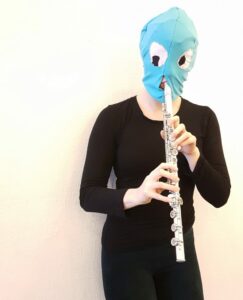
Leslie: What makes your work ‘immersive’ in terms of music, performance, staging, filming and editing? Why do you work that way?
Amy: I think I’ve clarified that Kinder Society is immersive insofar as the original piece of theatre that it was designed to be, required audience participation and was therefore immersive in the most literal sense. Why I work that way, however, is an interesting question. Another close collaborator of mine uses the phrase ‘the audience is the only performer left to write for’ and I consider this to be at the heart of my thinking regarding these sorts of works. I like to have an intimate, provocative and manipulative relationship with my audience mainly because I find it very fun. I like to create fluid worlds as opposed to works that start when someone presses play and ends with the closing credits. In order to consider how that world would function beyond the parameters of the piece as it happens in realtime, that interactivity continues in the mind of each audience member. I like to create work you can continue in your imagination. That is why I make immersive work.
Next week, in ‘What’s So Great About Crime Fiction?’, author Kate Vane guest blogs about the power of crime fiction to question the controlling nature of institutions and explore people’s motivations.
ABOUT LESLIE TATE’S BOOKS:

I interviewed poet & artist Jane Burn who won the Michael Marks Environmental Poet of the Year 2023-24 with A Thousand Miles from the Sea.
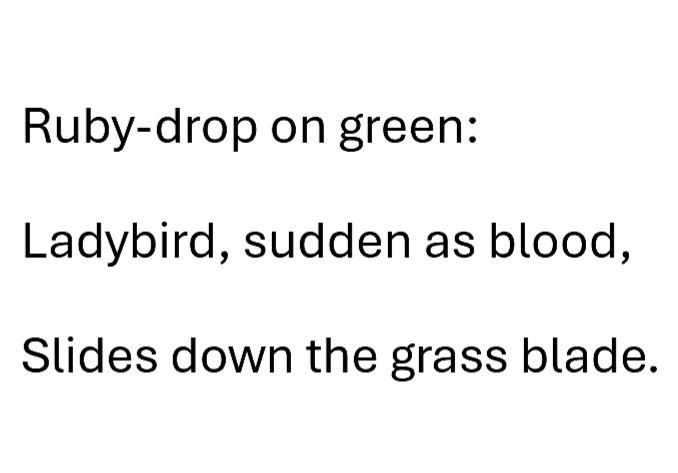
I interviewed ex-broadcaster and poet Polly Oliver about oral and visual poetry, her compositional methods, and learning the Welsh language. Polly says, “I absolutely love
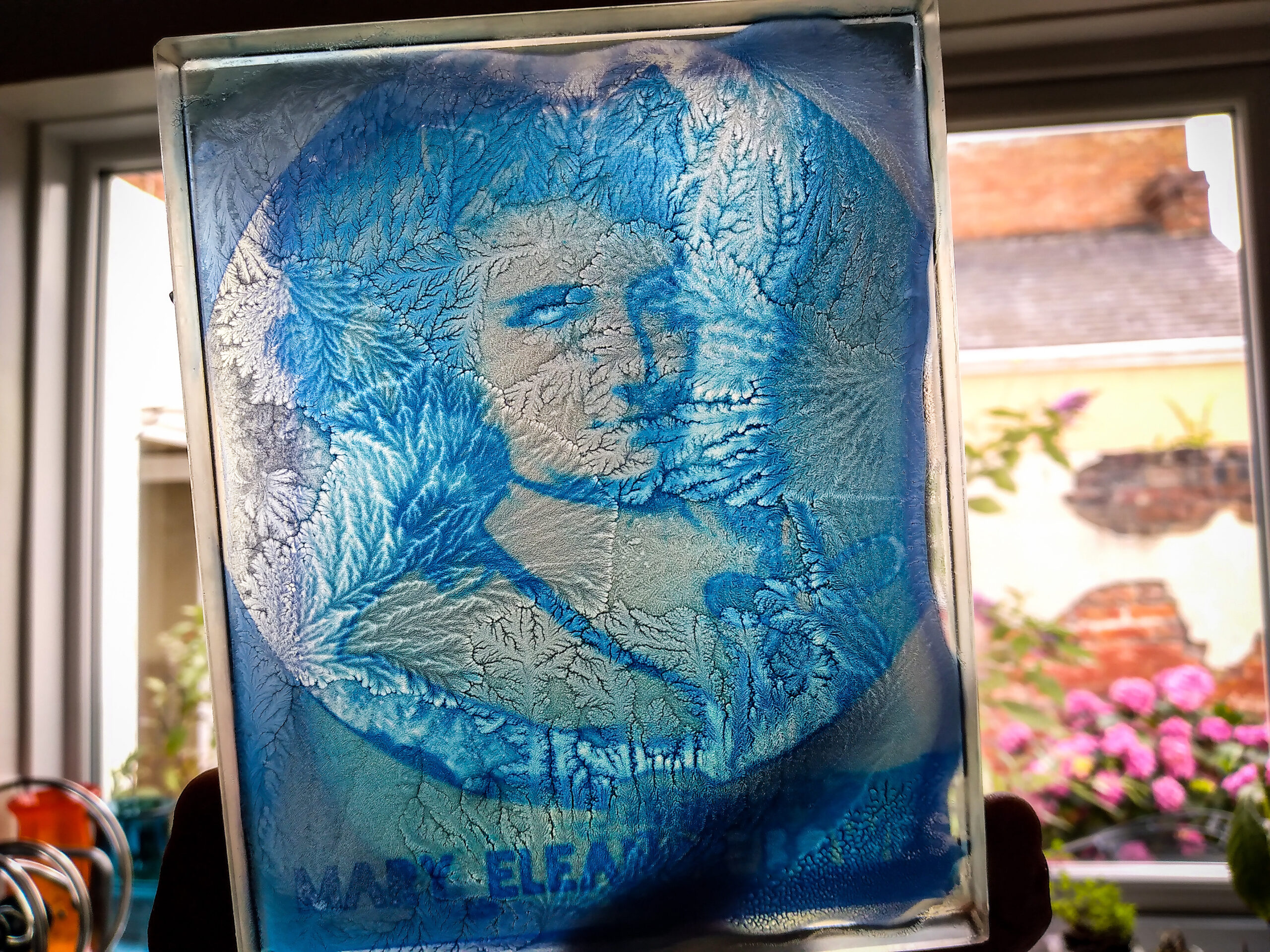
I interviewed Jo Howell who says about herself: “I’ve been a professional photographic artist since I left Uni in 2009. I am a cyanotype specialist.
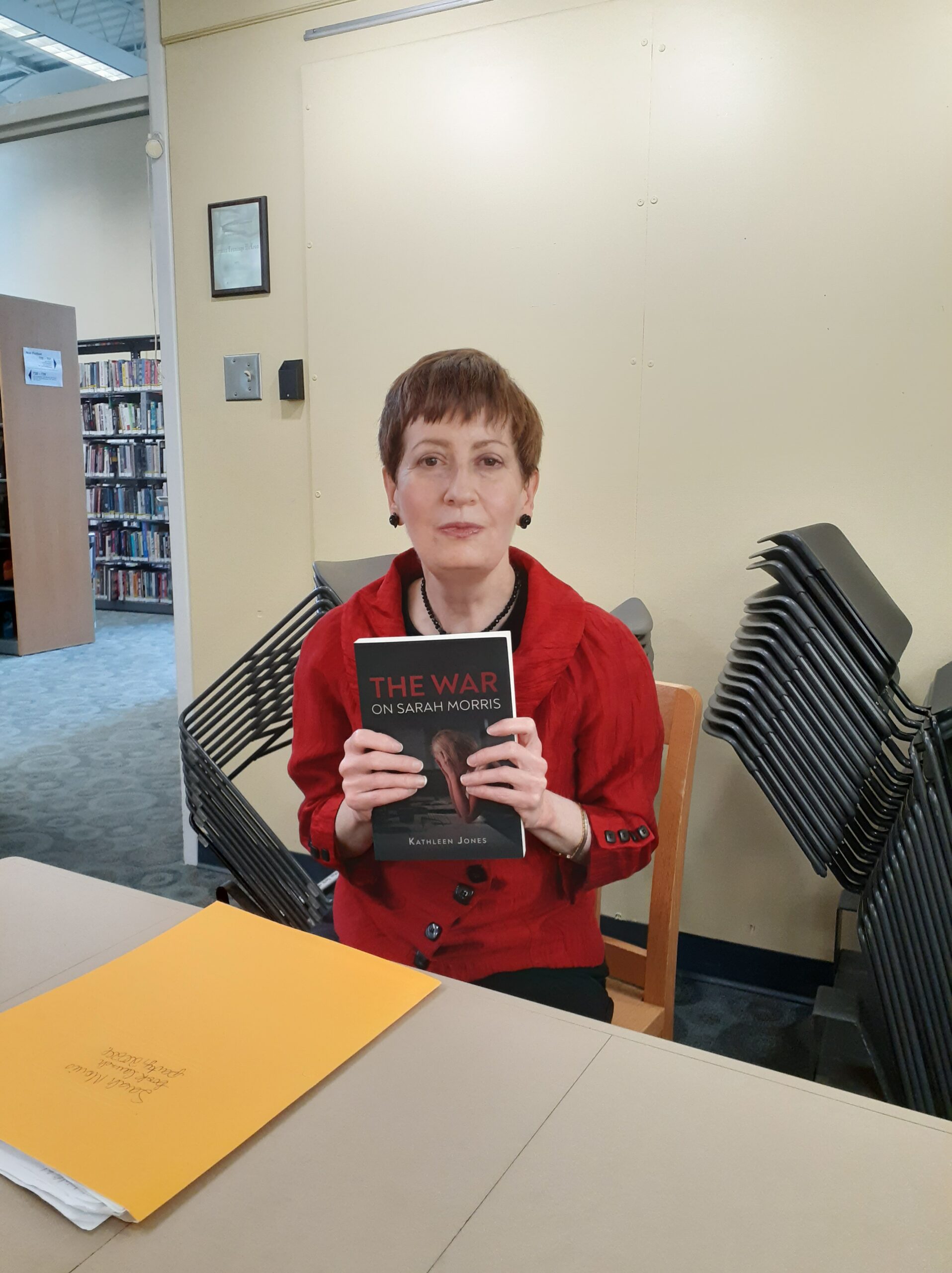
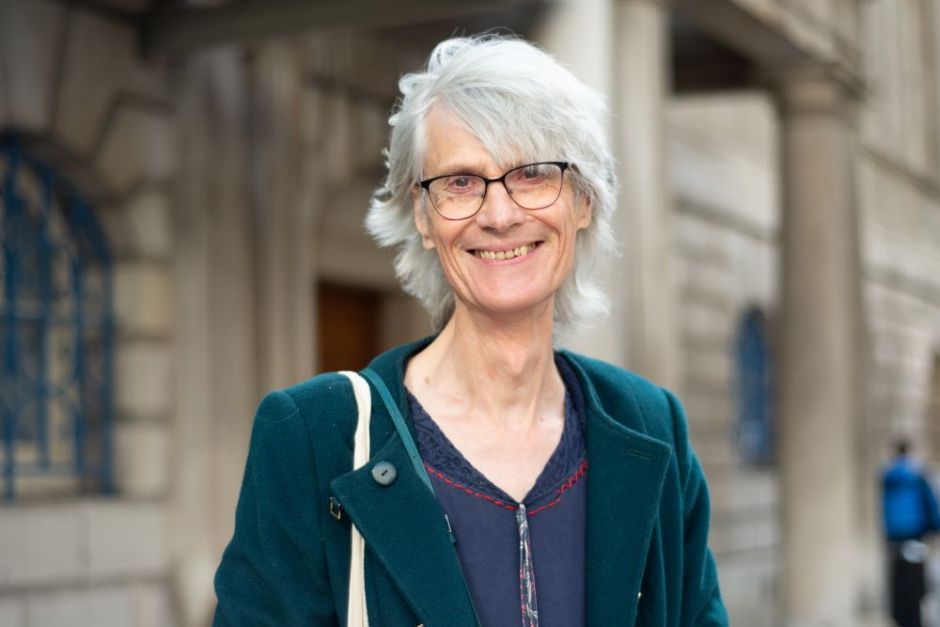
Poet Tracey Rhys, writer of Teaching a Bird to Sing and winner of the Poetry Archive’s video competition reviews Ways To Be Equally Human. Tracey,
| Cookie | Duration | Description |
|---|---|---|
| cookielawinfo-checkbox-analytics | 11 months | This cookie is set by GDPR Cookie Consent plugin. The cookie is used to store the user consent for the cookies in the category "Analytics". |
| cookielawinfo-checkbox-functional | 11 months | The cookie is set by GDPR cookie consent to record the user consent for the cookies in the category "Functional". |
| cookielawinfo-checkbox-necessary | 11 months | This cookie is set by GDPR Cookie Consent plugin. The cookies is used to store the user consent for the cookies in the category "Necessary". |
| cookielawinfo-checkbox-others | 11 months | This cookie is set by GDPR Cookie Consent plugin. The cookie is used to store the user consent for the cookies in the category "Other. |
| cookielawinfo-checkbox-performance | 11 months | This cookie is set by GDPR Cookie Consent plugin. The cookie is used to store the user consent for the cookies in the category "Performance". |
| viewed_cookie_policy | 11 months | The cookie is set by the GDPR Cookie Consent plugin and is used to store whether or not user has consented to the use of cookies. It does not store any personal data. |